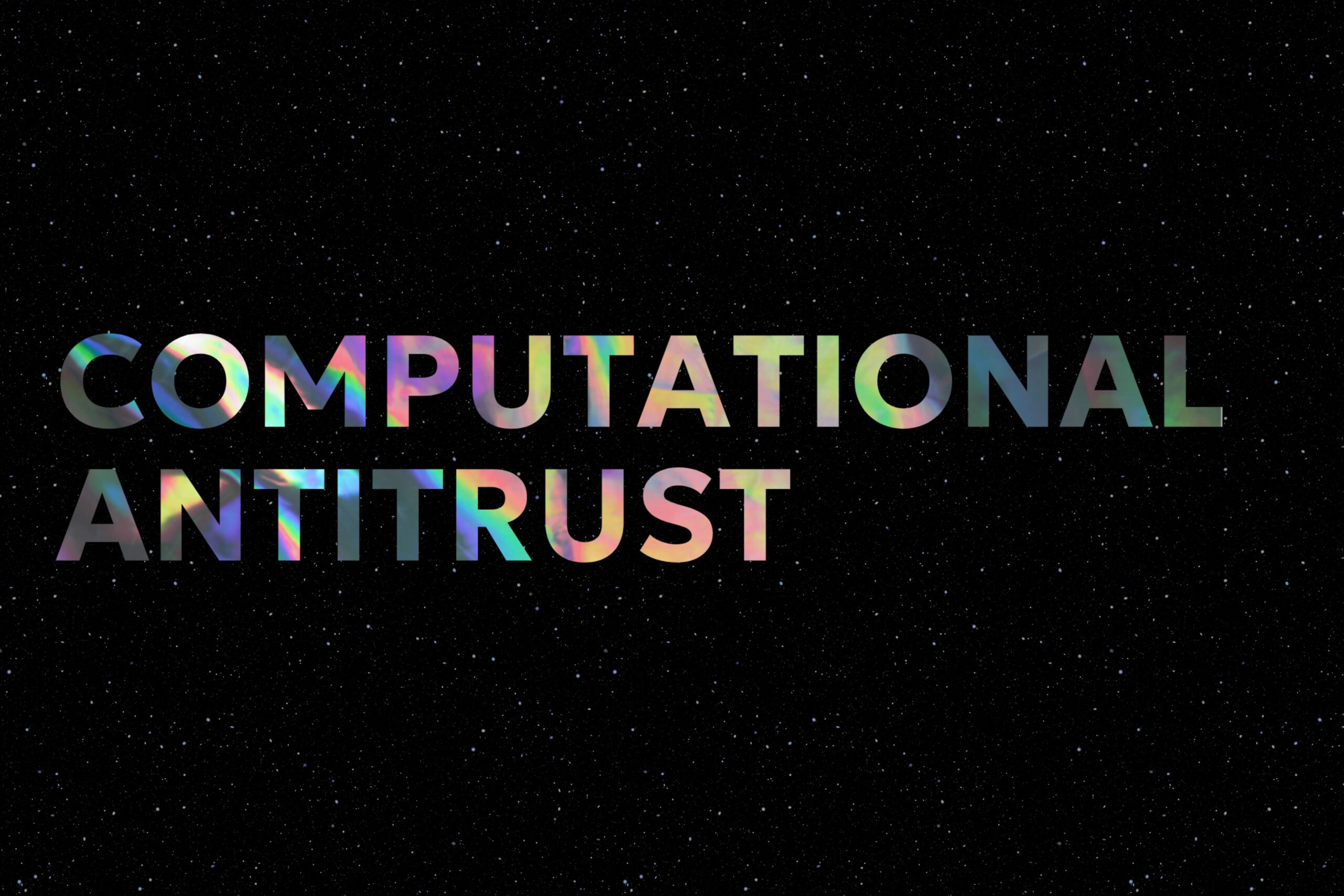Dear readers, the Network Law Review is delighted to present you with this month’s guest article by William H. Page, Marshall M. Criser Eminent Scholar Emeritus, University of Florida Levin College of Law, and John E. Lopatka, A. Robert Noll Distinguished Professor of Law, Penn State Law.
****
In a recent article, we examine the relationship between the state action (or Parker v. Brown1317 U.S. 341 (1943).) antitrust immunity and Eleventh Amendment constitutional immunity, two doctrines that in certain cases shelter state governmental entities and officials from federal antitrust liability.2See William H. Page & John E. Lopatka, Parker v. Brown, The Eleventh Amendment, and Anticompetitive State Regulation, 60 Wm. & Mary L. Rev. 1465 (2019). Although both immunities are related to state sovereignty, they have developed from different sources, along different paths, and have reached different, but overlapping, areas of applicability in antitrust cases. The complex differences between the immunities raise issues for antitrust policy. We argue in our article, however, that the most important issues arise in cases in which the Eleventh Amendment immunizes state agency officials for state-connected restraints in circumstances in which the state action doctrine consciously leaves the same officials open to antitrust liability.3Id. at 1496-1500. We then analyze whether Eleventh Amendment immunity, by sheltering officials from treble damage liability for those restraints, threatens consumer welfare. In this essay, after briefly recapping our earlier argument, we extend our policy discussion to legislative immunity, another doctrine that may shelter restraints in the same cases even from injunctive relief.
The differences between the state action and Eleven Amendment immunities do not matter for federal antitrust enforcement agencies, which the Eleventh Amendment does not constrain.4West Virginia v. United States, 479 U.S. 305, 312 n.4 (1987). Nor do they matter in actions against sovereign state entities, like a state supreme court, because both doctrines immunize those entities.5Hoover v. Ronwin, 466 U.S. 558, 567-68 (1984). And finally, they do not matter in actions against local governments, which may enjoy state action immunity,6Town of Hallie v. City of Eau Claire, 471 U.S. 34, 38-39 (1985). Apart from state action immunity, local governments and their officials may be protected from damages liability for antitrust violations by the Local Government Antitrust Act, 15 U.S.C. §§ 35-36 (1988). but not Eleventh Amendment immunity.7Mt. Healthy City Sch. Bd. of Educ. v. Doyle, 429 U.S. 274, 280 (1977) (holding sub-state entities are not “arm[s] of the state”). The only state-connected restraints that raise significant concerns for antitrust policy are those involving intermediate state entities, like state administrative agencies, especially those controlled by practicing members of the profession they regulate. The Supreme Court has purposely left restraints by these entities open to antitrust scrutiny when the conditions for state action immunity are unfulfilled,8N.C. State Bd. of Dental Examiners v. FTC, 574 U.S. 494, 503-04 (2015) (hereinafter North Carolina Dental). but the Eleventh Amendment nevertheless shelters the entities and their officials from antitrust damage liability.
For example, “prototypical” state agencies and their officials are immune under Parker only if the state legislature clearly authorized their actions.9In North Carolina Dental, the Court distinguished between “prototypical state agencies” and “agencies controlled by active market participants.” Id. at 511. Eleventh Amendment immunity, by contrast, applies so long as the agency is an “arm of the state”—for example, when a judgment against the agency would be satisfied out of the state treasury10Hess v. Port Auth. Trans-Hudson Corp., 513 U.S. 30, 48-51 (1994). or when requiring the agency to litigate would offend the state’s “dignity.”11Ex parte Ayers, 123 U.S. 443, 505 (1887). And under North Carolina Dental, which we discuss below, when active members of the regulated profession dominate an agency, the state action doctrine immunizes agencies or officials from liability, only when the officials are acting with both clear state authorization and active supervision by a superior state entity.12North Carolina Dental, 574 U.S. at 511 (“When a State empowers a group of active market participants to decide who can participate in its market, and on what terms, the need for supervision is manifest.”). Eleventh Amendment immunity, however, does not require either condition, if the agency is an arm of the state. In these common examples, the Eleventh Amendment may protect agency members from damage liability even when Parker immunity would leave them liable. That extra layer of immunity seems to threaten consumer welfare.
We argue, however, that the antitrust concerns these cases raise are largely unwarranted, primarily because of the curious exception to Eleventh Amendment immunity recognized in Ex parte Young.13209 U.S. 123 (1908). Under that case, agencies’ officials remain subject to actions for prospective injunctions brought against them in their official capacities.14Id. at 159-60. One might think Young does not solve the problem because antitrust damages are necessary to deter antitrust offenders, especially those who can wield state power to exclude competition. We argue, however, that injunctive relief is probably sufficient. Since such a restraint would be public, either a federal agency or an injured private individual or class would have a strong incentive to sue. Moreover, allowing treble damages would risk overdeterrence. Because antitrust violators face joint and several liabilities, members of state boards would risk enormous potential damages if they regulated entry, even though they gained little individually from it. The prospect of disproportionate penalties could deter practitioners from serving on licensing boards and regulating in ways that benefit consumers. We suggest, therefore, that Eleventh Amendment immunity may be efficient in this instance, even though the courts arrived at it without considering the optimal remedies issue.
There remains, however, at least one other immunity doctrine that might alter this conclusion:15Official immunity also includes immunity for those performing adjudicative functions, like judges, Pierson v. Ray, 386 U.S. 547, 554-55 (1967), and prosecutors while engaged in prosecutorial activities, who are then sometimes described as having “quasi-judicial” immunity. See Imbler v. Pachtman, 424 U.S. 409, 420, 427, 430 (1976). In this essay, we focus on legislative immunity, but a typical agency combines legislative, adjudicative, and prosecutorial functions, so other immunities might apply. See, e.g., Scott v. Cent. Maine Power Co., 709 F. Supp. 1176, 1187 (D. Maine 1989) (“Even though by statute a state agency official at various times may perform legislative, executive[,] and judicial functions, . . actions taken in the performance of a particular function are to be accorded the level of immunity appropriate to that function.”). In addition, qualified immunity sometimes shields government-connected actors who are not entitled to absolute immunity, such as police officers (see Pierson, 386 U.S. at 554-55), executive-branch officials (see Scheuer v. Rhodes, 416 U.S. 232, 247 (1974), and school officials (see Wood v. Strickland, 420 U.S. 308, 322 (1975). Qualified immunity protects officials from “civil damages insofar as their conduct does not violate clearly established statutory or constitutional rights of which a reasonable person would have known.” Harlow v. Fitzgerald, 457 U.S. 800, 818 (1982). It typically is asserted in 42 U.S.C. § 1983 cases, but the immunity analysis is the same in cases brought directly under the U.S. constitution and federal statutes. For an application to antitrust, see Christopher James Marth, Comment, Qualified (Immunity) for Licensing Board Service?, 84 U. Chi. L. Rev. 1473 (2017) (arguing for qualified immunity). Because the Eleventh Amendment protects board members from antitrust damages liability even when they are sued in their individual capacities based on official conduct, qualified immunity from damages liability in the same cases is unnecessary. legislative immunity, which shelters agency officials performing “legislative functions”16Tenney v. Brandhove, 341 U.S. 367, 379 (1951). See also State Employees Bargaining Agent Coalition v. Rowland, 494 F.3d 71, 86 (2d Cir. 2007) (holding legislative immunity protected the governor and state officials from an injunction against performing their legislative roles, which would include terminating the positions of union employees entirely, but would not include the administrative act of firing them). Id. at 94. from liability from both damages and injunctive relief.17By contrast, absolute judicial immunity shields an actor from damages liability but not injunctive relief. Pulliam v. Allen, 466 U.S. 522, 541-42 (1984). In other words, even though both the state action doctrine and the Eleventh Amendment immunity, as qualified by Ex parte Young, would permit an injunction action against an agency official for an antitrust violation, legislative immunity might preclude it, if the official was performing a legislative function or relief would enjoin a legislative act.
Unlike state action and Eleventh Amendment immunity, legislative immunity does not derive from state sovereignty; it addresses the need to insure that “the legislative function [is] performed independently without fear of outside interference.”18Supreme Court v. Consumers Union of U.S., 446 U.S. 719, 731 (1980). It is an absolute immunity, not qualified by the good faith of the official or the objective reasonableness of the official’s conduct under constitutional and statutory law.19See Harlow, 457 U.S. at 818. It applies to both state and federal officials engaged in legislative functions.20Id. at 732. It also protects individuals not only from liability but from litigation. Id. It protects individuals from suits, not only for damages but also for injunctions, which would equally compromise the separation of powers and distract the official from legislative tasks.21Id. at 733; Tenney v. Brandhove, 341 U.S. 367, 377 (1951). While legislative immunity is usually invoked to bar § 19832242 U.S.C. § 1983. claims against state actors for infringing on federal constitutional rights, it can also bar antitrust claims.23Thillens, Inc. v. Cmty. Currency Exch. Ass’n of Ill., Inc., 729 F.2d 1128, 1129 (7th Cir.1984).
Despite legislative immunity’s potential applicability to antitrust claims, few defendants have raised it. One reason is likely the requirement that the challenged or requested act must be ‘legislative’. Legislative immunity applies not only to legislators performing legislative functions, but also to the executive branch, administrative, and local government officials who engage in “actions taken ‘in the sphere of legitimate legislative activity’”.24Bogan v. Scott-Harris, 523 U.S. 44, 54 (1998) (quoting Tenney, 341 U.S. at 376). For example, as one court noted, a county commission member’s votes or statements in a legislative process are protected, but letter writing to influence a permit process is not.25Pine Ridge Recycling, Inc. v. Butts County, Ga., 855 F. Supp. 1264, 1269 (M.D. Ga. 1994). We do not address whether legislative immunity would bar antitrust claims for injunctive relief against a local government in cases in which state action immunity would not. The court also held state action protection inapplicable, because the action was outside local governmental authority.26Id. at 1271. Presumably, had the commissioner’s action to impede the permit process been legislative, legislative immunity would have sheltered him from both damages and an injunction prohibiting the conduct.
Consider also the Supreme Court’s decision in North Carolina Dental, which held the state action doctrine did not bar the FTC’s suit challenging a state dental regulatory board’s issuance of cease-and-desist orders against non-dentists performing teeth whitening services.27North Carolina Dental, 574 U.S. at 511-12. The Court reasoned that, because the board was composed of dental practitioners—market actors with incentives to use their authority to exclude lower-cost competitors—the board’s exclusionary actions would be immune under Parker only if, like private actors, they were subject to active supervision by a higher state body. Despite this limitation on state action immunity, later courts have held the Eleventh Amendment precludes private damage actions against regulatory boards, even if they are dominated by practitioners.28Rodgers v. La. Bd. of Nursing, 665 F. App’x 326, 329-30 (5th Cir. 2016) (applying the Eleventh Amendment to preclude a damage action against the state board that terminated the plaintiff’s nursing program, even if the board was dominated by private practitioners). Nevertheless, we conclude in our earlier article that this difference does not threaten consumer welfare significantly because prospective injunctive relief remains a sufficient remedy to assure that a public or private plaintiff will challenge any important restraints.
Would legislative immunity go a step further and preclude even prospective injunctive relief in the same circumstances? And, if so, would consumer welfare then be at risk? In North Carolina Dental itself, for example, if the board, instead of issuing cease-and-desist orders, had adopted a rule defining the practice of dentistry to include teeth whitening, legislative immunity might protect board members not only from a suit for damages challenging the adoption of the rule, but also from an injunction action seeking rescission of the rule, or compelling adoption of a new one. Promulgating a legislative rule under delegated legislative power is a legislative act.29See Consumers Union, 446 U.S. at 734 (suggesting that those exercising delegated legislative power may be entitled to legislative immunity). In Gonzalez-Droz v. Gonzalez-Colon, 717 F. Supp. 2d 196, 214 (D.P.R. 2010), aff’d on other grounds, 660 F.3d 1 (1st Cir. 2011), the court held a board of medical examiners’ adoption of a “Public Notice” limiting the practice of cosmetic surgery to plastic surgeons and dermatologists was legislative, and entitled to absolute legislative immunity in a § 1983 suit; “the Board’s actions in voting, and approving a resolution which regulates the practice of medicine are clearly legislative in nature, even when performed by members of the Board and not local legislators. Additionally, the Public Notice, in substance, ‘bore all the hallmarks of traditional legislation,’ insofar as it reflects a discretionary, policymaking decision implicating the practice of medicine and affecting physicians as well as the general public.’” Id. at 214, citing Bogan, 523 U.S. at 56. But see Turner v. Nat’l Council of State Boards of Nursing, Inc., No. 11–2059–KHV, 2012 WL 1435295, at *8 (D. Kan. Apr. 24, 2012) (finding “State Board members have not met their burden of establishing legislative immunity”).
Even this immunity, however, is unlikely to impair antitrust enforcement. The immunity does not extend to actions that are not inherently legislative, even when taken by officials with legislative authority.30See, e.g., Consumers Union, 446 U.S. at 734-35 (concluding that a state supreme court and its chief justice had had absolute legislative immunity for the issuance and failure to amend ethical rules for attorneys prohibiting advertising but not for actions in enforcing rules). In North Carolina Dental itself, for example, the board members’ issuance of cease-and-desist orders was not a legislative function, because it was based on the members’ interpretation of existing law. Because regulatory agencies typically act by order as well as rule, injunctive relief challenging the implementation of anticompetitive state regulation probably remains available to challenge significant restraints in the circumstances that we discuss in our recent article, despite possible immunity for purely legislative functions.
To summarize, then, state-connected restraints deserve special scrutiny, because they can exclude competition more effectively than purely private restraints. The state action doctrine purposely leaves some of these restraints subject to antitrust liability. Even in these cases, however, the Eleventh Amendment may immunize state agency officials from treble damage liability. Absolute legislative immunity could go further and shelter these same officials even from injunctive relief against actions that qualify as legislative. To the extent legislative immunity protects restraints left unprotected by the others, it might threaten consumer welfare, because some anticompetitive regulation would evade antitrust sanctions. We argue here, however, the conditions on legislative immunity’s applicability are sufficient to limit its potential consequences for antitrust policy.
William H. Page and John E. Lopatka
***
| Citation: William H. Page and John E. Lopatka, Parker v. Brown, Legislative Immunity, and Anticompetitive State Regulation, Network Law Review, Fall 2022. |








